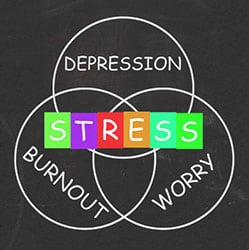If you suspect that you are at risk or have symptoms of prostate cancer, it is imperative that you contact your doctor for proper screening.

Glutamate is an excitatory neurotransmitter. It is the most common neurotransmitter in the central nervous system. It is crucial for learning and long-term memory.
GABA (Gamma-Aminobutyric Acid), which is made from glutamate, is an inhibitory neurotransmitter. Its primary role is to exert an inhibitory effect on excitatory neurotransmitters, which can cause anxiety. Individuals with too little GABA can develop anxiety disorders.
Acetylcholine plays a role in attention, memory, learning, and REM (rapid eye movement) sleep. It has excitatory and inhibitory effects and acts in the brain and muscles. Acetylcholine stimulates voluntary (skeletal) and involuntary muscles (smooth muscles), e.g. the gastrointestinal system. It is found in sensory neurons and predominates the autonomic parasympathetic nervous system.
Neurotransmitters are important in the stress response and allow us to cope with stress. Unfortunately, with prolonged stress, neurotransmitter imbalances arise, which leads to anxiety, depression, and other psychological disorders.
Everyone suffers from the blues or being anxious at some time in their lives. When we have to take an exam, for example, we may be filled with dread, particularly if we have not studied enough. Even the most cheerful person can have moments of sadness triggered by memories, financial losses, or the loss of a loved one. However, even though we refer to these mood changes as anxiety and depression, these normal episodes are quite different from clinical anxiety and depression, which have longer-lasting and more serious symptoms.
Give us a call today to inquire about cortisol testing. Abnormal cortisol levels are causing your depression and anxiety!
The content on this website is not intended to be a substitute for professional medical advice, diagnosis, or treatment or to warrant any treatment, product or service. The information on this site is not designed and should not be used to diagnose, treat, cure or prevent medical conditions.
 Taylor Medical Wellness Group
Taylor Medical Wellness Group